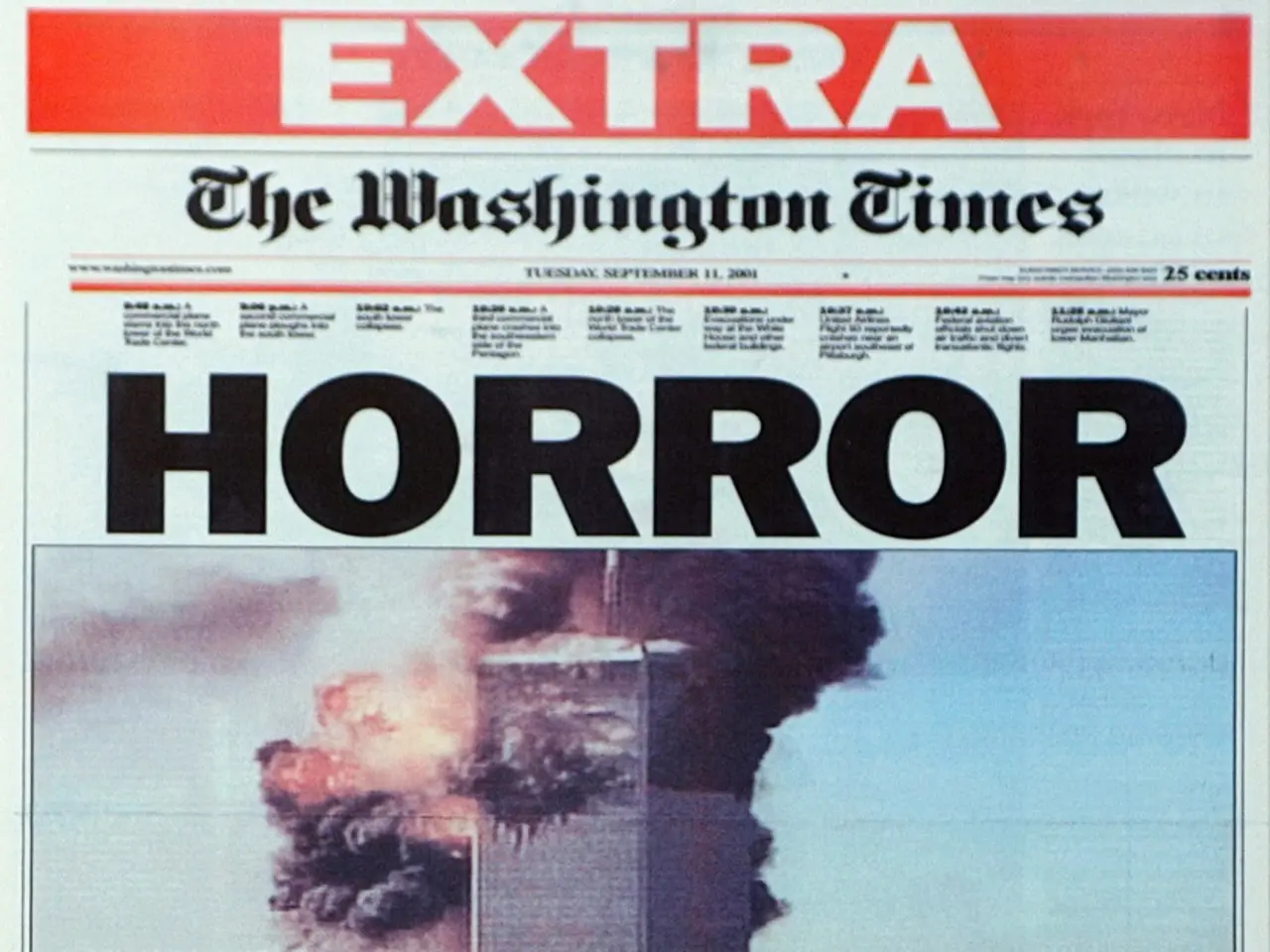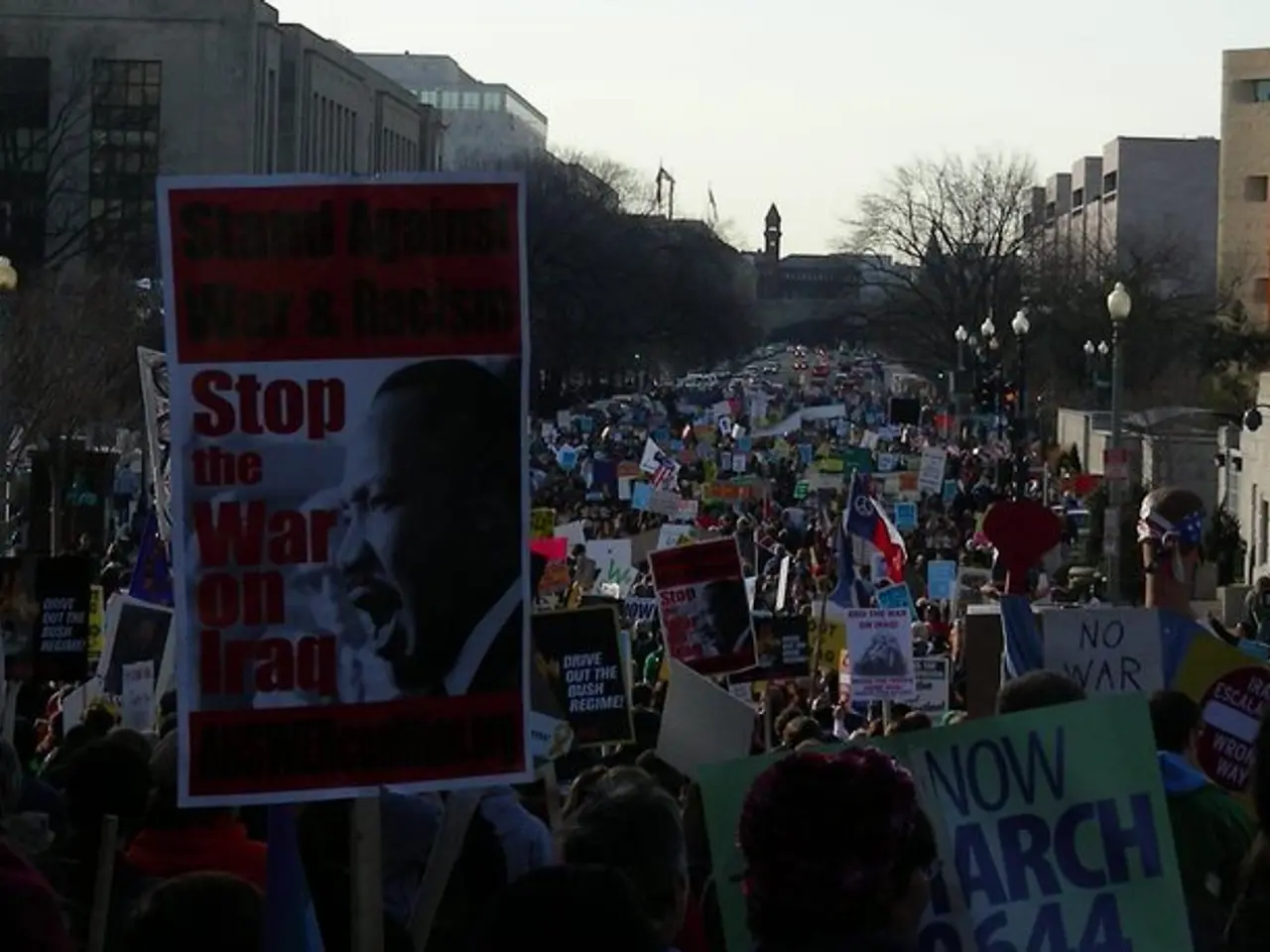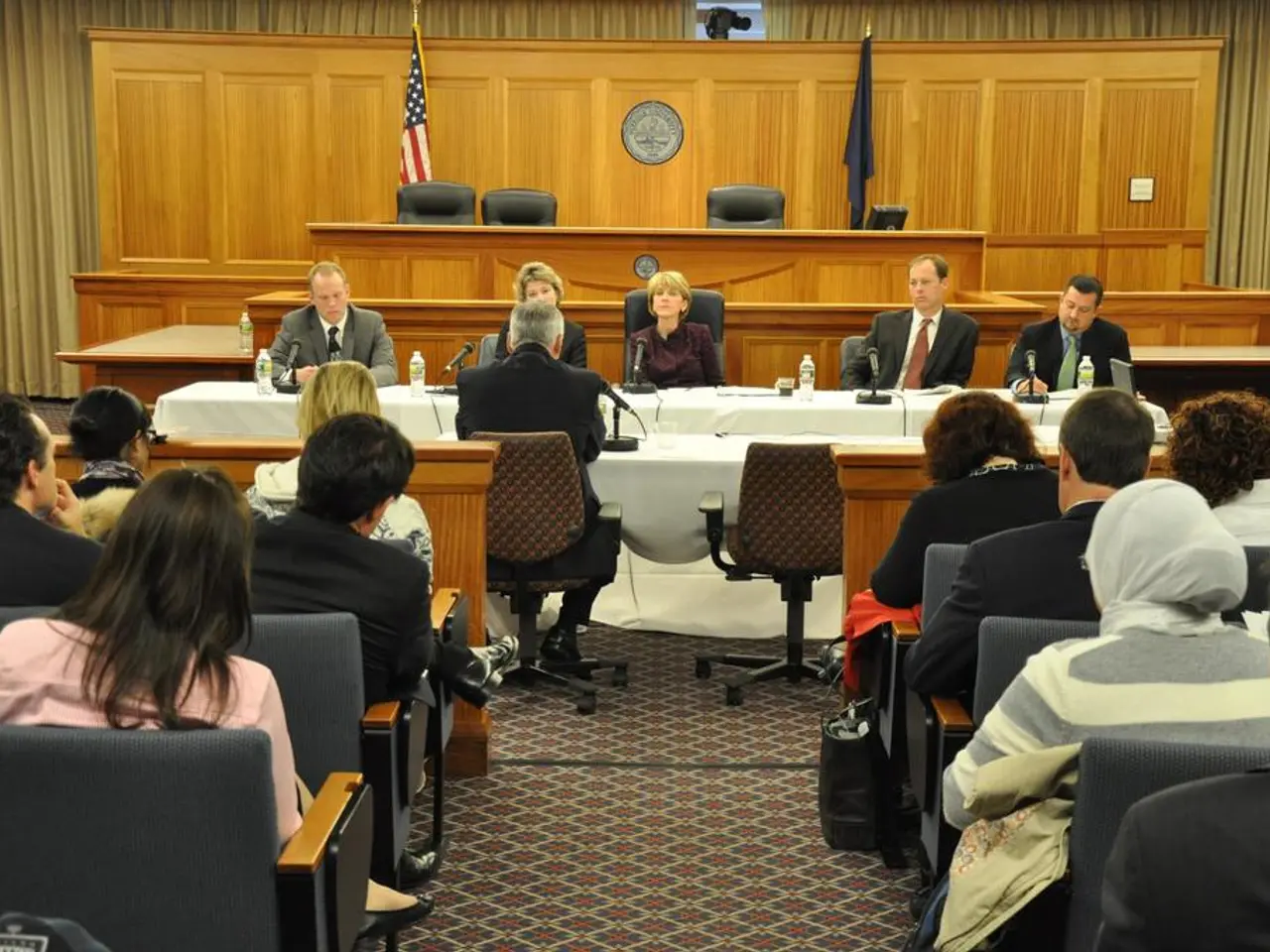Hunger-stricken individuals in Gaza surpass 133
The humanitarian situation in the Gaza Strip remains critical, despite recent efforts to deliver aid, as highlighted by the Gaza Ministry of Health's warning of a potential sharp increase in mortality due to ongoing food shortages and the inability to provide necessary medical aid.
In response to the ongoing conflict, the Israel Defense Forces (IDF) launched a military operation called "Iron Swords" on an unspecified date. During this operation, strikes, including those on civilian infrastructure, were carried out.
Thursday saw a significant number of trucks carrying humanitarian aid enter the Gaza Strip, as reported by the governor of Egypt's North Sinai province, Khaled Mugawar. The crossing of these aid trucks was made possible by Egyptian efforts. The IDF also announced the resumption of aerial delivery of humanitarian aid.
However, the aid situation remains dire. Between July 20 and early August 2025, at least 12,000 metric tons of food items were brought into Gaza, yet more than 90% of the aid was offloaded by hungry crowds or looted by armed groups along aid convoy routes, leading to ongoing casualties among people trying to access this aid near militarized checkpoint areas.
Hospitals in the region have recorded six new deaths in the last 24 hours, with two of these being children. The surging malnutrition among children and the overflow of hospitals underscore the deteriorating humanitarian conditions.
UN experts emphasize that Israel must immediately restore unimpeded access for impartial humanitarian organizations like UNRWA and OCHA to prevent further starvation and suffering. Over 500,000 people (about a quarter of Gaza’s population) are at risk of famine, and all 320,000 children under five face acute malnutrition with long-term health consequences.
International calls, including statements from countries like Singapore, stress the need to remove all restrictions on humanitarian aid, facilitate unimpeded aid flow, protect civilians and humanitarian workers, and seek an immediate ceasefire to avert further crisis.
As of early August 2025, substantial funding gaps remain, with about $882 million disbursed of the $4 billion requested for critical humanitarian needs in Gaza. The restoration of safe, full, and impartial humanitarian access remains urgently needed to prevent further mortality and suffering.
- Amidst the escalating crisis in Gaza, the latest news indicates a surge in medical-conditions, with hospitals reporting six new deaths in the last 24 hours, including two children.
- The ongoing conflict has led to a critical shortage of food, as 90% of the humanitarian aid offloaded in Gaza over the past few weeks has been looted or diverted, according to general-news reports.
- In the face of this dire humanitarian situation, UN experts have called for politics to prioritize the immediate removal of restrictions on humanitarian aid, particularly in the fields of science (medical aid) and crime-and-justice (protection of civilians and humanitarian workers), to prevent further war-and-conflicts-related suffering and starvation.








